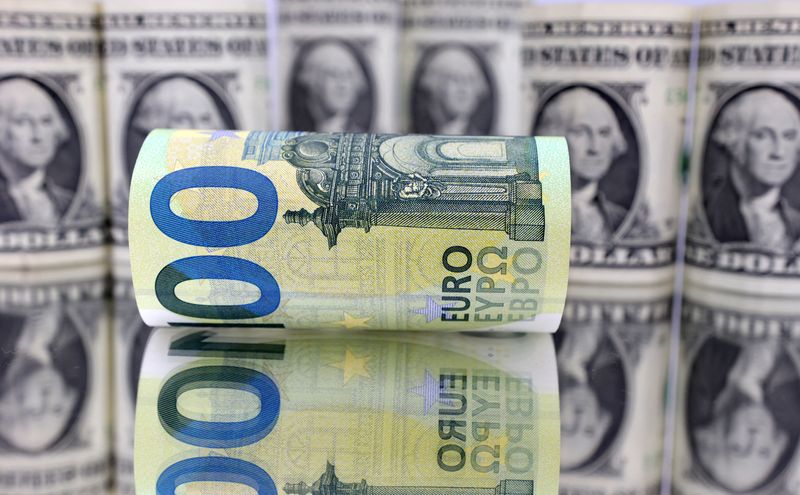By Gertrude Chavez-Dreyfuss
NEW YORK (Reuters) - The U.S. dollar's share of currency reserves reported to the International Monetary Fund rose in the second quarter, with the Federal Reserve in the midst of an aggressive tightening cycle aimed at stamping out uncomfortably high inflation.
The greenback's share of reserves rose to 59.5%, from 58.8% in the first quarter, IMF data showed on Friday.
The euro's share, however, slipped to 19.8% in the second quarter from 20% in the first, declining for three straight quarters.
Global reserves, which are reported in U.S. dollars, are central bank assets held in different currencies used in part to support their liabilities. Central banks sometimes use reserves to help support their respective currencies.
"The new (IMF) figures illustrate the growing demand for the dollar as the Fed embarked on an aggressive tightening cycle which collided with Europe's darkening growth outlook," said Joe Manimbo, senior market analyst, at payments company Convera in Washington.
The dollar index rose 6.5% in the second quarter after advancing 2.4% in the first quarter, underpinned by the Fed's policy tightening stance. So far in 2022, the greenback has surged 17% against a basket of major currencies, on track for its best yearly percentage gain.
The Fed, which has raised U.S. borrowing costs faster in 2022 than any time since the 1980s, has raised interest rates to a range of 3.0%-3.25%, from 0% in March. U.S. rate futures have priced in on Friday a 59.3% chance of another 75 basis-point rate increase.
In contrast, the euro zone has been hampered by an energy crisis, which has weighed on the euro even though the European Central Bank has been hiking interest rates as well.
In the second quarter, the euro dropped 5.3% versus the dollar.
The IMF data also showed the Chinese yuan's share of currency reserves edged up to 2.9% in the second quarter from 2.8% in the first three months of the year. In absolute terms, however, central bank holdings of the yuan fell 4.1% to $322.38 billion. The IMF started tracking the yuan's share in 2017.

The yen's share dipped to 5.1% during the period, compared with 5.3% in the first quarter. In dollar terms, yen reserves fell 8.3% to $578.52 billion.
IMF data also showed global reserves slid to $12.036 trillion in the second quarter, from $12.544 trillion in the first quarter. In the fourth quarter of 2021, reserves hit a record $12.92 trillion.